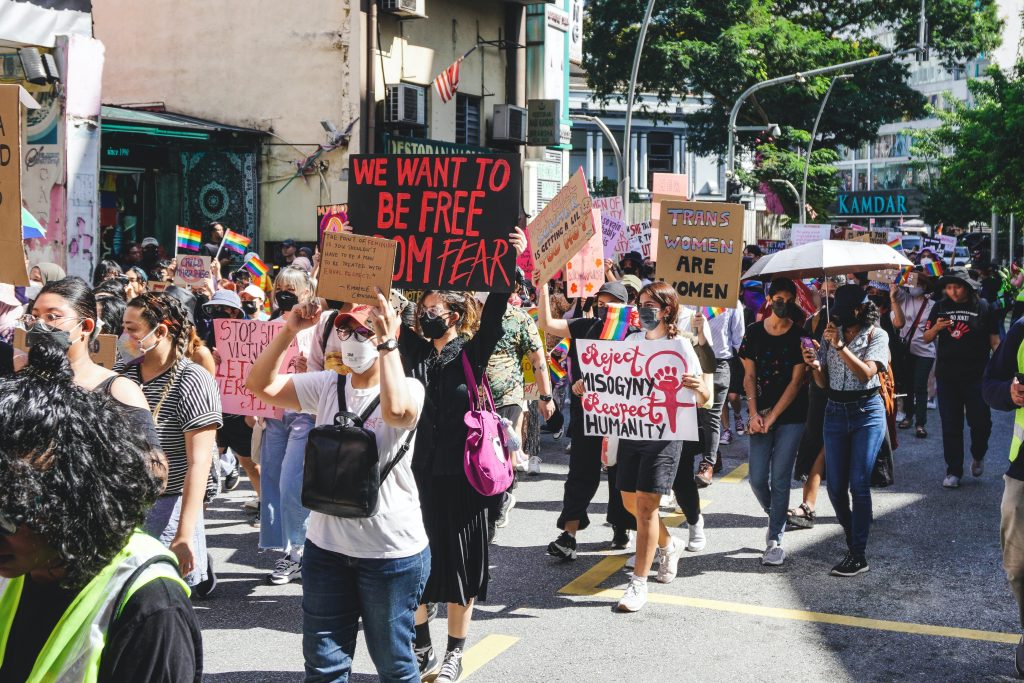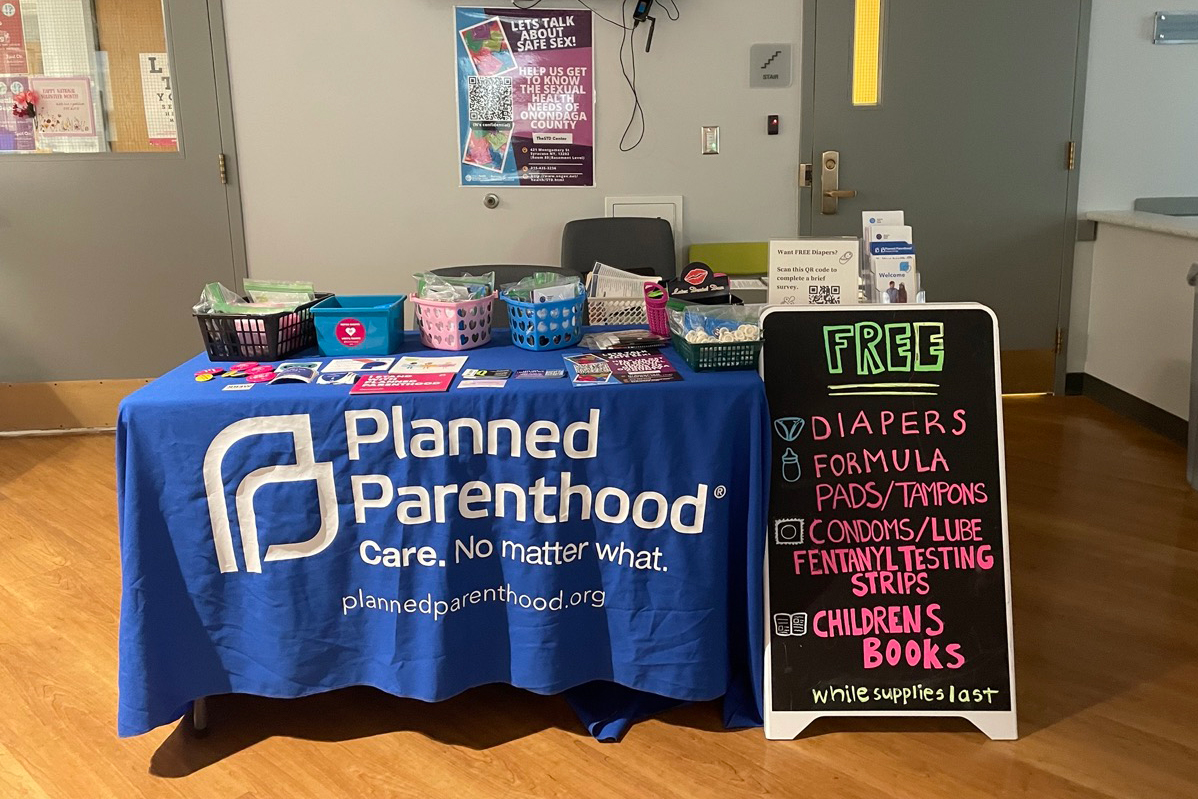A look at sexual healthcare access post Roe v. Wade
A look at sexual healthcare access post Roe v. Wade

Abortion restriction is undoubtedly a national health issue, both physically and emotionally. The stigmatization and politicization of abortions and reproductive health has reverted women’s rights and led to national outcry, and the ramifications affect women far beyond their ability to get an abortion.
The complexities of this dilemma are limitless. Females from northern and southern states face differing consequences: undergoing an abortion in a state that allows it in a toxic political atmosphere, or simply the inability to get one in the first place.
Meredith Ouderkirk, manager of Community and Public Affairs at Planned Parenthood Syracuse, has seen this first hand.
“It’s really damaging to live in a country where you’re faced with that sort of challenge, and that’s something that women, transgender and gender non-conforming people are experiencing every day– to live in this environment where you’re not sure what your rights are going to look like day to day,” she said.
Ouderkirk works in the non-medical part of Planned Parenthood, with her main goals concerning relationship-building with elected officials, increasing community awareness and endorsing beneficial policies for the community. This branch of Planned Parenthood spans nine health centers in Central and Western New York, working to provide education and healthcare to community members.

“We’ll go into schools, go into community centers,” Ouderkirk said, “We’ll have conversations with young people about sexual health and about things like healthy relationships, the ability to say no, giving and receiving consent.”
Organizations like Planned Parenthood are working against this political health crisis. Ouderkirk lists the resources at Planned Parenthood such as abortion treatment, STD testing and birth control supply as ways of supporting women in a tumultuous time for women’s rights. She emphasizes the idea that ultimately, the wellbeing of the patient is the priority. This has been a difficulty at Planned Parenthood due to restrictions on reproductive resources and treatments.
“We have a set of dedicated professionals who care deeply about our patient’s safety,” Ouderkirk said,
“We’re all equipped with certain levels of knowledge about things to look out for in our patients.”
Along with conversations and education, Planned Parenthood Syracuse works to ensure safety for those who choose to undergo an abortion treatment. This care for patients’ safety helps in the already difficult environment for women in this country who make this choice.
This is the norm for people who have been stripped of their reproductive rights. Planned Parenthood has seen it all; women forced to go to term against their will, instances where they put their own life in danger or women being prevented from getting necessary medications.
Ouderkirk made sure to clarify that Planned Parenthood is not a political organization; rather, their view on the overturning of Roe v. Wade concerns the healthcare aspect of the issue. This is, of course, all impacted by the atmosphere of the United States.
“First and foremost it’s a healthcare issue and it impacts our ability to provide expansive healthcare to all of our patients,” she said, “it really puts their wellness in jeopardy, and that is our primary concern.”
Access to abortion and other reproductive services varies from state to state. Ouderkirk emphasized that the ability to make choices about reproductive and sexual health should not be a state issue. New York, where Planned Parenthood Syracuse resides, is an access state, with a governor who defends those rights.
“Whether you live in the North, in the South, whether you live in an access state, your ability to make decisions about your reproductive health care should not be decided in the courtroom,” Ouderkirk said, “It should be a decision between you and your doctor.”
Aubrey Wright, a junior at Syracuse University, shares these sentiments. As a female who grew up in New Jersey then moved to Texas, she has experienced the political environment of both the North and South. She described her New Jersey hometown as a progressive and liberal area right outside of New York City. Conversely, entering her hometown in Texas, about 45 minutes outside of the city of Austin – which is a blue city – one will encounter confederate flags. This was a culture shock to Wright.
When Wright heard of the news of the overturning of Roe v. Wade in the summer of 2022 she was in disbelief.
“When it came out that Roe v. Wade was overturned, it was devastating, especially thinking of people who can’t afford birth control or to go to a doctor if they needed an abortion,” she said, “It was just terrible.”
Wright describes the morning of the decision; her mother called her, ensuring her that if she ever needed an abortion treatment they had a plan. They would go back to Jersey. This made Wright extremely aware of her ability to travel and obtain abortion services as compared with those who could not afford it and would have to turn to unsafe methods of abortion. She felt the urge to protest, but that was not acceptable in her hometown.
“It was really scary because in the area I was in people were celebrating the overturning, whereas all my friends in New Jersey and New York City were protesting, and I couldn’t protest,” says Wright.
Wright said that she doesn’t feel her rights are directly limited; she has the privilege to afford alternatives to reproductive restrictions. She emphasized that if you asked someone who does not have those privileges and abilities, they would have a far different answer.
“I think we need more women in government who understand what it is to go through being on birth control and going through an abortion,” Wright said, “People need to open their eyes and realize that if you’re not a woman, your opinion shouldn’t affect it.”
Planned Parenthood is fighting every day towards this ultimate goal of patients’ right to access to care no matter where they live, according to Ouderkirk.
“What we want to get to is a place where we don’t have to fight for health care anymore,” Ouderkirk said, “We want this to not be a state issue, or whether the town that you live in zones appropriately for healthcare institutions. We want to see a future where everyone has access to all the reproductive care that they need.”
Despite the religious and political complexities of the issue, female college students like Wright, and healthcare professionals like Ouderkirk, agree on one central belief: reproductive rights access should be a right, not a privilege based on geographical location because it bears heavily on individuals’ humanity and mental health.
“Roe v. Wade was a heartbreaking loss,” Ouderkirk said, “But it was a loss that a generation of people had already been experiencing. The right to an abortion never guaranteed access. As we start to have these conversations where we’re rebuilding reproductive autonomy, we want to make sure that we’re including everyone in that access.”





